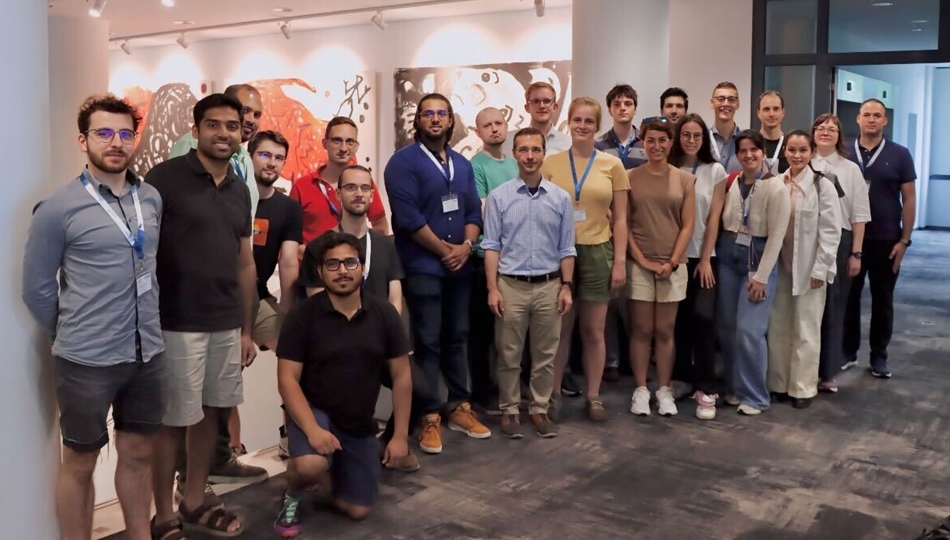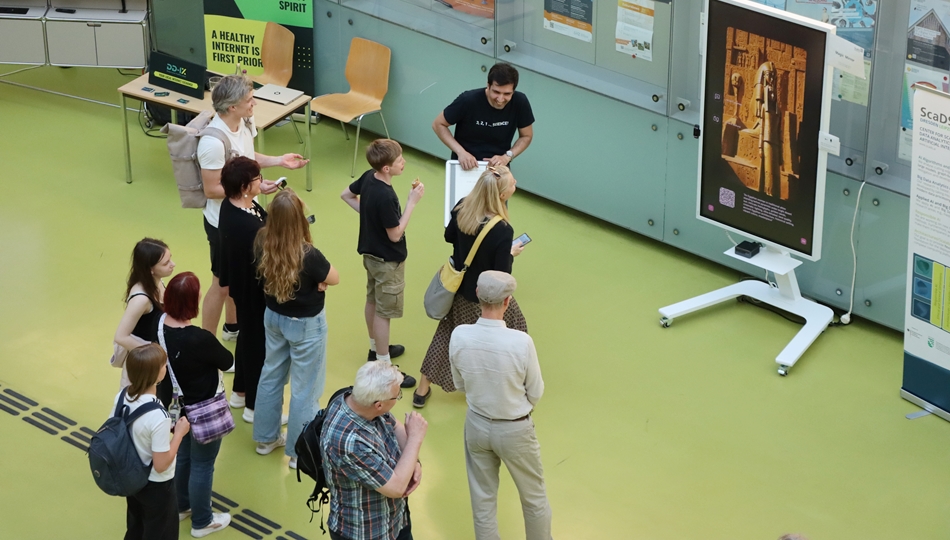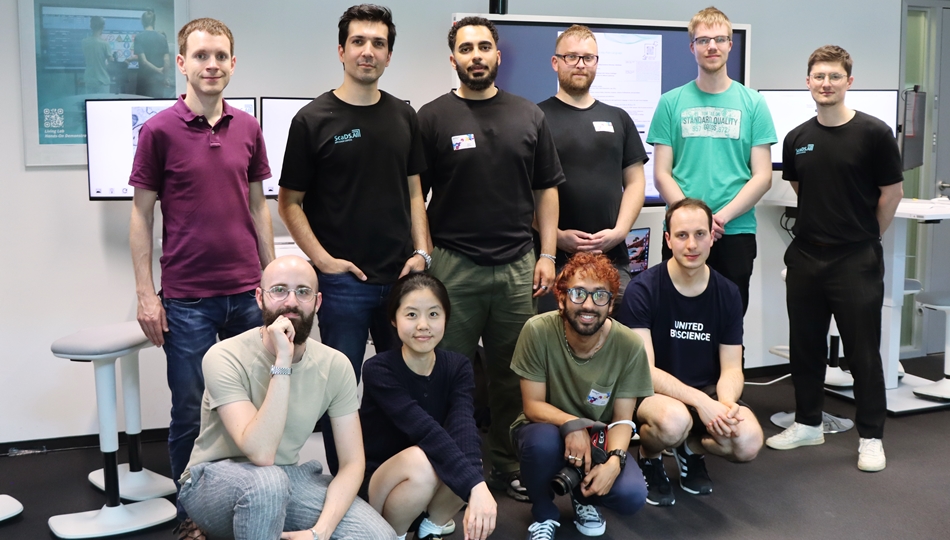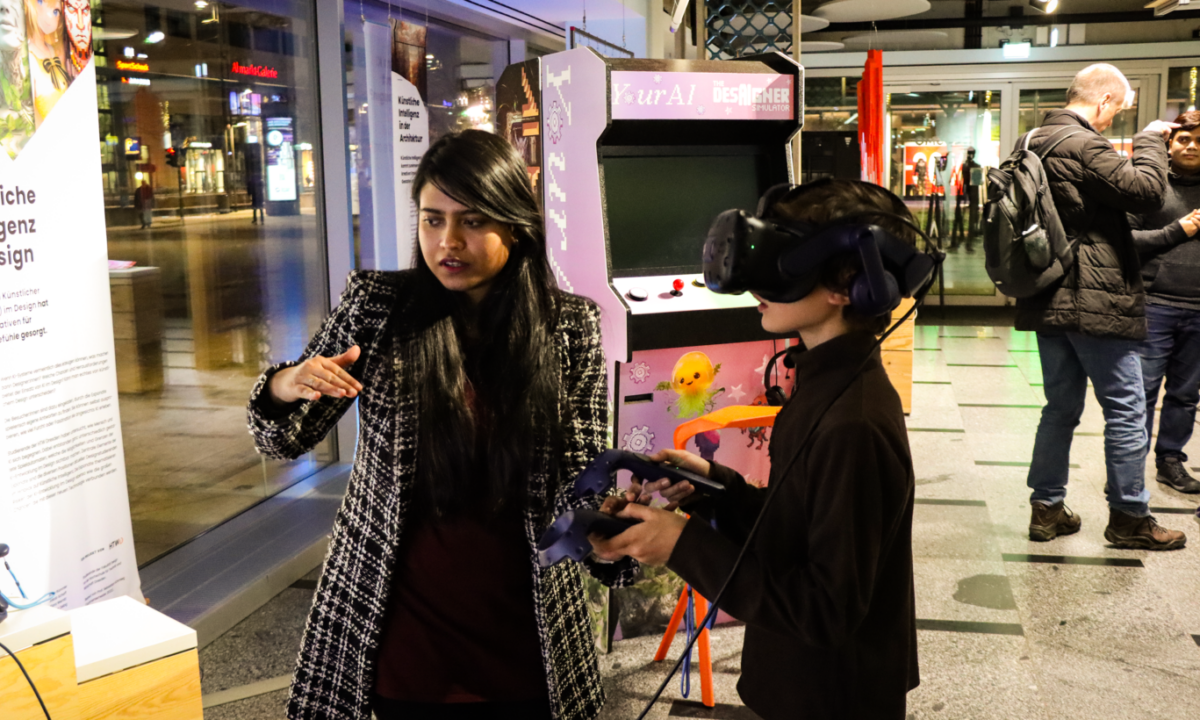
19. January 2024
Exploring Climate Change in Virtual Reality: FloodVis at COSMO Wissenschaftsforum

“VR FloodVis: Explore Climate Change in Virtual Reality” took place on 19.01.2024 at COSMO Wissenschaftsforum in Dresden. Marzan Tasnim Oyshi is one of the main researchers behind FloodVis. She described why visualization of climate change and resulting flooding situations is important when discussing such events and their impacts in political discussions. The event is part of the the Hands-On Demonstrator Series.
Participants from all backgrounds joined in and discussed the importance of such tools for informing the public as well as passing on the knowledge of scientists working in this domain to the politicians who end up making decisions impacting the general public. The participants then had the opportunity to:
- try out the virtual environment,
- interact with the data, and
- explore the temporal evolution of different flood events under the influence of climate change.
FloodVis: Exploring Climate Change in Virtual Reality
In cooperation with the Leibniz Institute of Ecological Urban and Regional Development, our researchers are assessing future flood risks using climate change as the driver for the entire flood risk chain comprising atmospheric, hydrological, hydrodynamic, and damage processes. Using multi-model applications, the climate change signal is routed through every component of the risk chain and uncertainties stemming from climate scenarios, climate models and hydrological parametrisations are identified and quantified.
Different climate change ensembles serve as input for long-term high-resolution hydrological modelling to detect future flood events. Inundation maps are derived using 2-dimensional hydrodynamic modelling. Damage estimation covers construction and inventory damage. Transient risk curves, including uncertainty bounds, are derived.
Due to the high-resolution in space and time, high performance computing is applied. Performance testing is crucial to run a comprehensive model chain. A special challenge is the coupling of the model chain, since different system requirements have to be coordinated.
Visual data analytics is used to provide support in understanding the processes responsible for flood risk generation in a flood risk system.
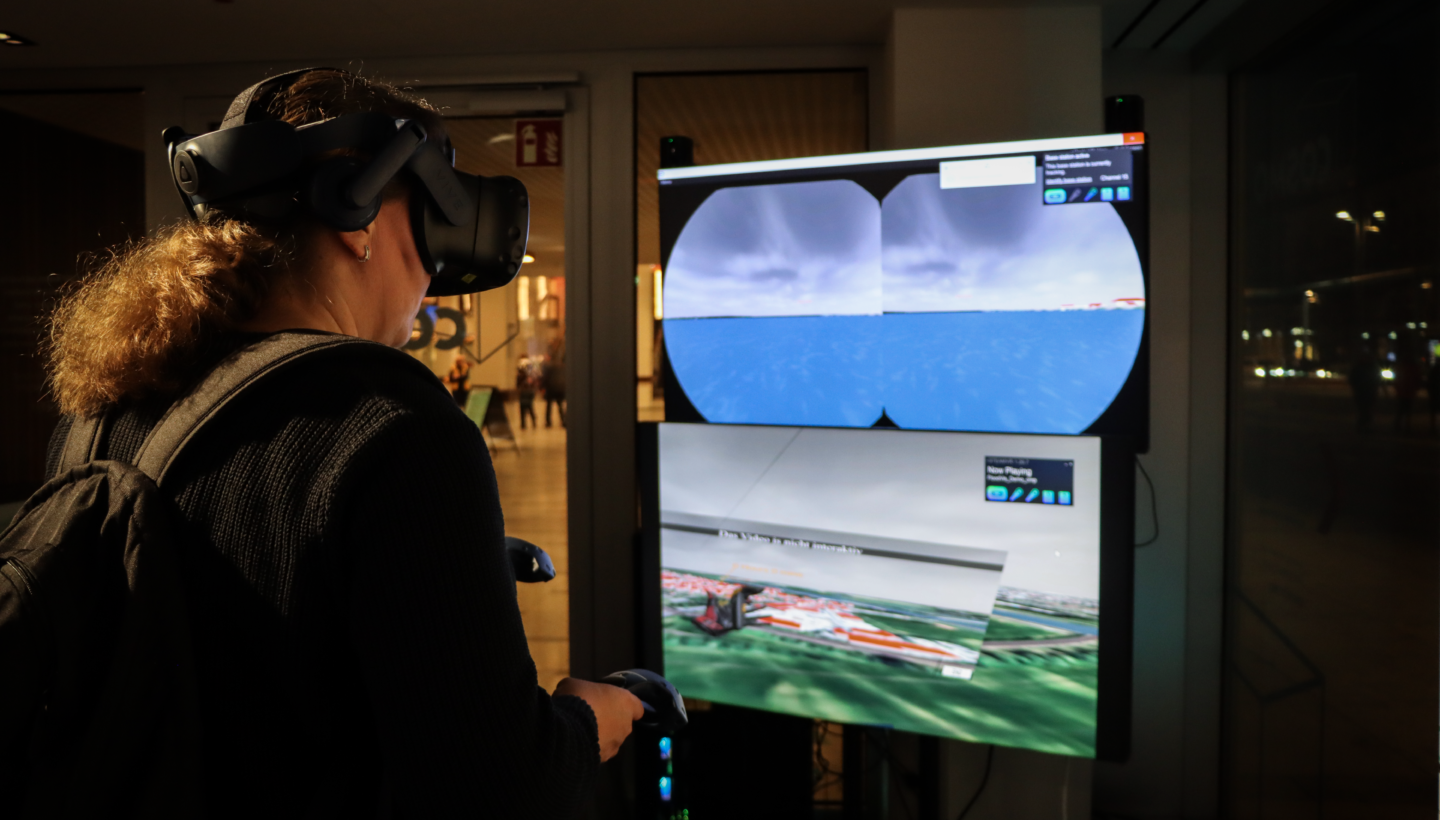
The Hands-On Demonstrator Series
The Hands-On Demonstrator Series is a collaborative effort involving multidisciplinary researchers from ScaDS.AI Dresden/Leipzig. It showcases our latest accomplishments, improvements, and educational tools in the field of Artificial Intelligence, Big Data and Data Science. Therefore, keep a close eye on the next Hands-On Demonstrator Series events. Participation in these events is free and will give you great insights into our research. The series is organized by Neringa Jurenaite and Apurv Deepak Kulkarni.


